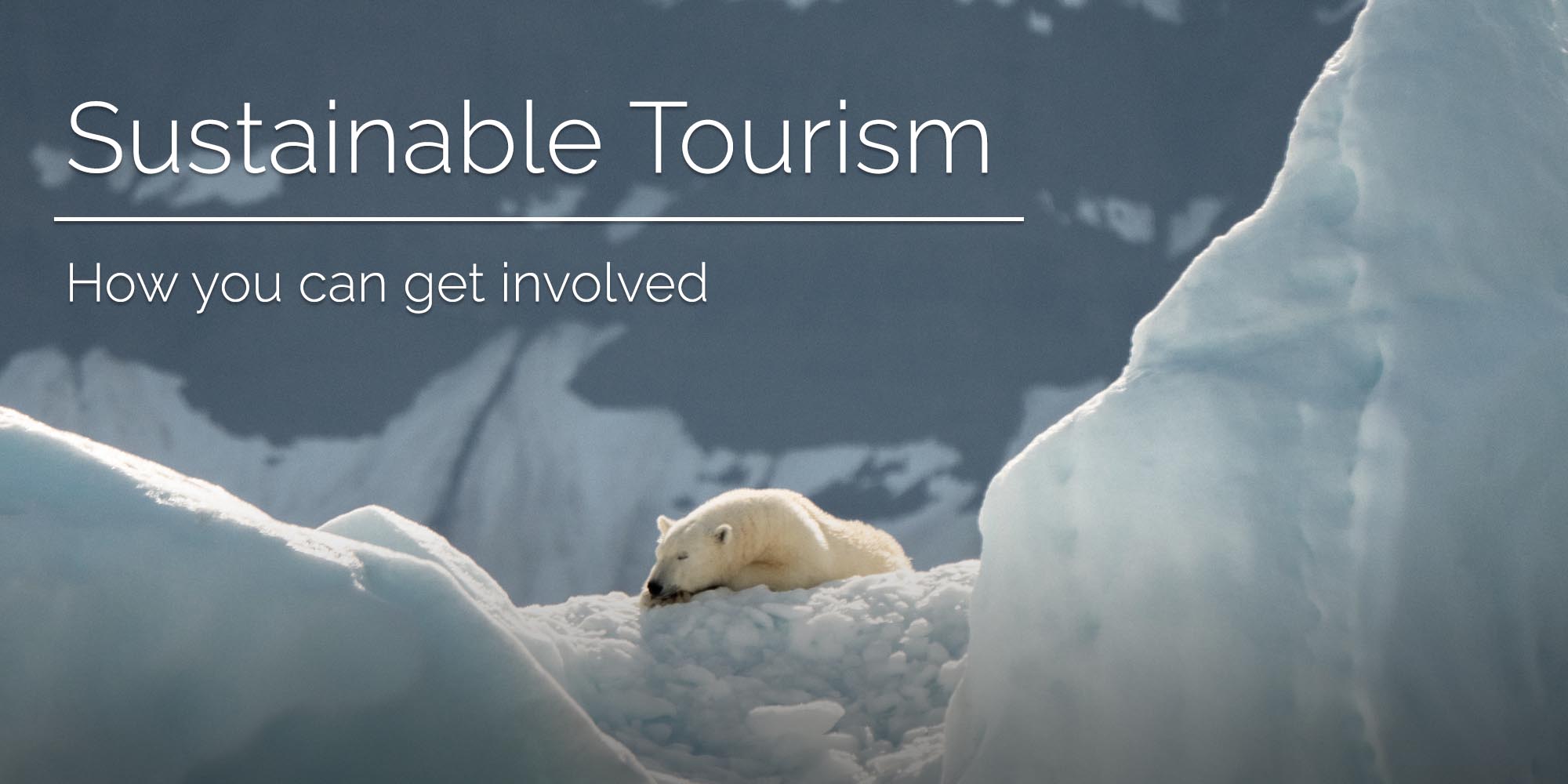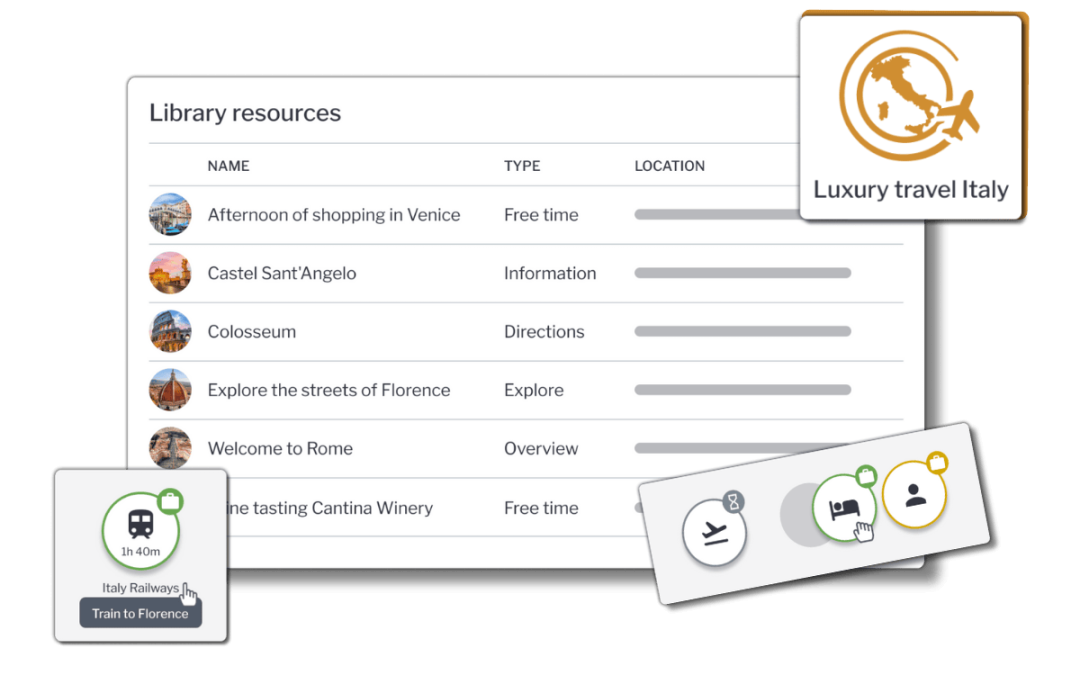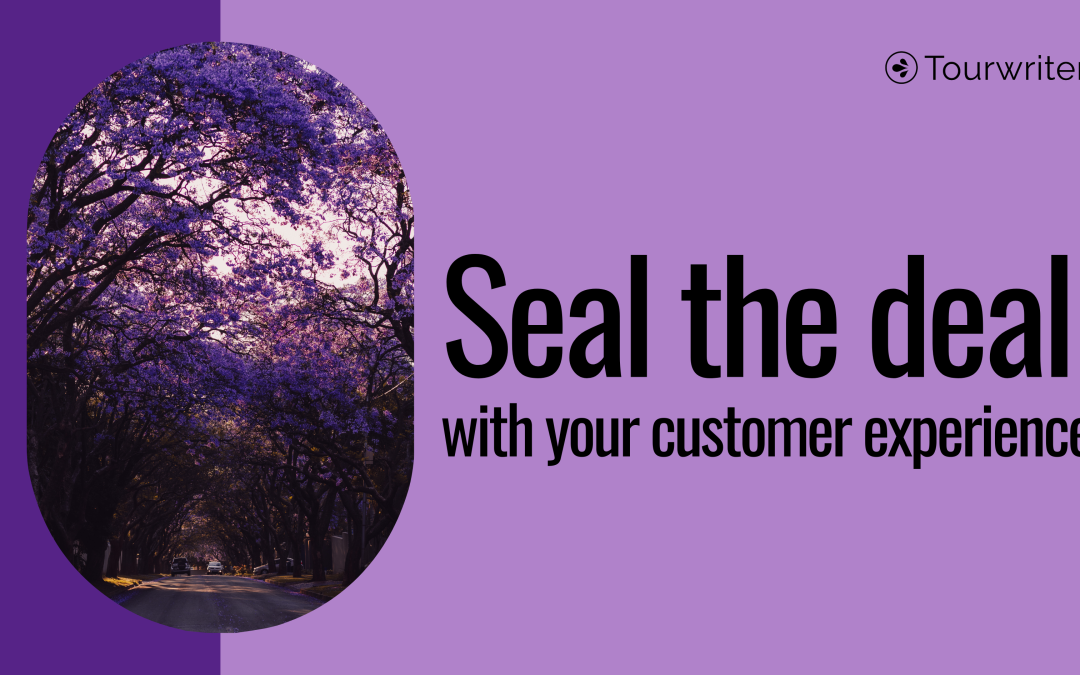Our house is on fire: How your tour operator business can get involved in sustainable tourism.

April 22nd marks Earth Day, a global day of awareness for the climate crisis that our planet is currently experiencing. Being prompted on a day each year to consider the impact that our actions are having on the environment is important, however, we are at the stage where giving the environment a fleeting thought each year is nowhere near enough. Our house is on fire and we need to take action. A recent report released by the UN states that we have approximately a decade to ensure that we keep the temperature increase under 1.5 degrees Celcius, otherwise we face irreversible damage and a significant increase in natural disasters such as floods, cyclones and drought. We know, it sounds dire, but thankfully there are simple, effective actions that your tour operator business can take to do your bit for climate action and sustainable tourism.
Sustainable tourism is about more than just protecting the environment, it’s about preserving the livelihood of the whole industry, from the tourism businesses and the local communities right through to the customers and of course, the ecosystem. Sustainable tourism is defined by the UN World Tourism Organisation as “Tourism that takes full account of its current and future economic, social and environmental impacts, addressing the needs of visitors, the industry, the environment and host communities”. Investing financially, operationally and emotionally in sustainable tourism is a win-win for all involved and we’ve outlined how you can take action below.

Currently, we release 32 billion tons of CO2 into the atmosphere yearly. That number is increasing every year and will continue to increase unless we make substantial changes. Investing in electric vehicles to conduct your tours, or booking with suppliers who utilise e-Vehicles can make a huge difference. If e-Vehicle ownership rises to 16% by 2050, that’s the equivalent of removing 10.8 Gigatons of CO2 from the atmosphere or the equivalent of taking 74 million cars off the road. Another easy, simple, but effective way to reduce waste, and lower your company’s carbon footprint is to eliminate paper resources. Look into mobile itinerary tools rather than printed versions, develop your website rather than printing brochures, and utilise electronic management systems.
It may surprise you what large impacts can come from small actions. Even replacing the light bulbs in your building with LED’s will use 90% less energy than traditional light bulbs and take the equivalent of 54 million cars off the roads by 2050. Check out this great resource breaking down carbon emissions by action here.


A functioning tourism industry relies on the natural environment, but also the wellbeing of the community, businesses and people. In many places, local people rely entirely on the revenue that tourism brings to their community. If their restaurants, hotels and businesses are taken over by larger corporations, they risk losing their livelihood. As a tour operator, combating this means including local community members and businesses in your value chain; using local guides and taxi services, promoting and booking with locally owned and staffed restaurants and accommodation.
Keeping the profit in the community will both ensure that the destination continues to exist and that the local community can prosper for generations to come.

Outreach programmes are an amazing way to give back to the community and build awareness around certain issues affecting the tourism industry. There are endless opportunities for projects such as these, from conservation and clean-up programs that help the natural environment, through to projects that support the wellbeing of the community. Setting up education or apprenticeship programmes in the areas that your tour operator business works in, is an excellent way to help others enter the industry themselves in future.
Alternatively, if your tour operator business doesn’t sell to specific communities, you could invest economically in green energy or sustainable, conservation start-ups.
Take a look at some Tourwriter customers doing great things for their community
 Downbelow Marine & Wildlife Adventures are actively involved in some amazing conservation projects protecting the marine life in their area with beach cleanups, fishing net removal and planting trees. All these efforts help to keep both the natural environment and their business sustainable for the future.
Downbelow Marine & Wildlife Adventures are actively involved in some amazing conservation projects protecting the marine life in their area with beach cleanups, fishing net removal and planting trees. All these efforts help to keep both the natural environment and their business sustainable for the future.
![]()
Ultimate Safaris have set up a not for profit organisation that focuses on conservation and sustainability in their local area. A percentage of all revenue goes to the Tou Trust for projects such as rhino conservation initiatives and funding the upgrade of schooling infrastructure.
 Each year, Amani Afrika focusses on a different project to impact their community. In 2018, they were able to deliver 1,200 hygiene kits with reusable pads along with educational sessions on reproductive health to teenage girls who lived in remote villages.
Each year, Amani Afrika focusses on a different project to impact their community. In 2018, they were able to deliver 1,200 hygiene kits with reusable pads along with educational sessions on reproductive health to teenage girls who lived in remote villages.

Inala Nature Tours is a tour operator and wildlife preservation centre focussing on protecting the birds and wildlife and educating their visitors about the importance of conservation.

Sustainability extends right back to your own individual business model. Creating a sustainable business that contributes to the sustainability and wellbeing of the tourism industry as a whole is paramount, and surprisingly easy. The UN Sustainable Development Recommendations for Tourism outline some excellent ways to make your business model more sustainable for your employees and the industry. Employing women with equal pay opportunities, and expanding business relationships with women-owned enterprises helps to bring more women into the workforce. You can also provide your employees with ways to upskill and grow, or perhaps offer internships or apprenticeships so that others can learn and get involved in the tourism industry.
Take a look at the supply chain you are involved in. Are the suppliers you are using backed by organisations involved in conflict or environmental damage? You have power as a consumer to take profit away from these companies and instead, choose to place it in the hands of local communities.

As a tour operator business, talking to thousands of travellers a year, you have an excellent opportunity to educate your customers about sustainability and provide them with actionable resources. Remind your customers about the impact they are having during their travels and ways that they can reduce it. This could be as simple as providing them with conservation resources for the environment that they are visiting, encouraging them to reduce their waste or promoting sustainable activities such as cycle tours or wildlife sanctuaries while they are there.

Shout out your commitment to sustainable tourism in a meaningful way by taking direct action. These certifications and memberships help to educate others, provide resource and build a network to reach more, like-minded people and businesses. They are also an excellent marketing tool for your tour operator business, showing your potential customers that you are committed to sustainable practices.
The Global Sustainable Tourism Council provides some fantastic resources with actionable tips and advice for taking part in responsible travel. You can also become certified to show your customers that you comply with the highest environmental and social sustainability standards.
You can also become part of the International Ecotourism Society so you can keep up to date with everything happening in the network, get resources and attended workshops.
This resource has a list of different, country and niche specific certifications.

There is nothing more important than investing in our future. As a society, if we don’t make significant changes now, we will lose these stunning destinations in the future.
Sustainable tourism isn’t just a buzzword, investing in sustainable tourism really will help your business grow and become more profitable! As sustainability, and climate change becomes more and more visible, the public is really starting to understand the reality of climate change and becoming more acutely aware of the importance of reducing the environmental impact of their travel. Investing time in developing strong, sustainable business practices gives you some brilliant new marketing opportunities in an evolving and expanding space. Sustainable, green, eco… these words are appealing to more and more travellers who want to reduce their impact on the planet, but don’t necessarily know how. Your tour operator business can take the opportunity to allow them to do this. And remember, every change, every bit of effort counts towards a better future for us all!

Take a look at this list of the most dynamic sustainable tourism events for 2020 and beyond.
Project Drawdown breaks down where the most carbon is produced, why, and how this can be changed.
Test your knowledge of carbon-reducing activities with this quiz by CNN.
Check out these recommendations by Tourism for the Sustainable Development Goals.
Sustaining Tourism, Responsible Travel and The Eco Club all provide heaps of valuable information on what sustainable tourism is and why you should get involved.




